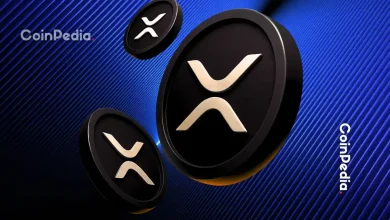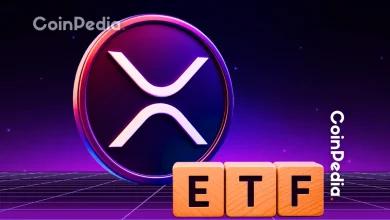
Andreessen Horowitz and the DeFi Education Fund have proposed a “safe harbor” to exempt certain dApps from broker registration
The plan aims to give developers clear rules while allowing the SEC to oversee genuinely risky activities.
The move comes amid a broader shift toward more crypto-friendly policies
When decentralized finance (DeFi) platforms meet traditional U.S. securities laws, the result is often confusion or legal trouble.
Andreessen Horowitz (a16z), one of Silicon Valley’s most influential venture capital firms, has spent years helping its portfolio companies sail through complex U.S. regulations.
It is now writing to the SEC to ask for clear rules so that DeFi platforms can grow safely without getting caught up in securities law issues. About time!
What’s at Stake: The Safe Harbour Proposal
On Wednesday, a16z and the DeFi Education Fund put forward a proposal to the SEC, seeking regulatory relief for certain blockchain apps. It suggests a “safe harbor” for certain decentralized apps, ensuring that broker registration rules fit the realities of blockchain systems.
According to the proposal, to qualify, an app must:
- Not hold user funds,
- Not exercise control over transactions,
- Not provide investment advice, or solicit investments,
- Operate only on blockchain networks that are fully decentralized, autonomous, and non-custodial.
A16z notes that most DeFi apps already fit this model. They are non-custodial, passive tools that allow users to connect directly with public, decentralized networks. If an app meets these criteria, it does not operate like a traditional broker and should not be forced to register as one.
Instead, it simply allows transactions to take place automatically and transparently
Clear Rules for Developers and DeFi Innovation
The letter claims that the “safe harbor” would give clear rules for developers, while letting the SEC still oversee risky activities. This would ensure that creators can build in the U.S. without worrying about outdated laws being wrongly applied to modern software.
Signs of a More Crypto-Friendly SEC
The push comes as the SEC shifts toward a more crypto-friendly stance.
Previously, the agency had signaled that apps like Coinbase Wallet, Uniswap, and OpenSea might need to register as brokers. However, those claims and investigations were later dropped.
A recent report from the President’s Working Group has also suggested easing rules for certain Defi providers.
Self-Custody: A Core American Right
At the recent Crypto Task Force Roundtable on “DeFi and the American Spirit,” SEC Chair Paul Atkins had said that the right to self-custody of one’s private property is a “foundational American value that should not disappear when one logs onto the internet.”
The SEC is exploring ways to back self-custodial and on-chain innovation, like offering guidance, updating rules, or creating an “innovation exemption” so that developers can safely bring crypto products to market.
Even though Congress has not passed full digital asset laws yet, Atkins has kicked off “Project Crypto” to push forward crypto-friendly initiatives and give the market a clearer direction.
Never Miss a Beat in the Crypto World!
Stay ahead with breaking news, expert analysis, and real-time updates on the latest trends in Bitcoin, altcoins, DeFi, NFTs, and more.
FAQs
The VC firm proposes exempting non-custodial, decentralized apps from broker registration if they don’t hold funds, control transactions, or give investment advice – protecting true DeFi projects.
The proposal complements the SEC’s initiative to clarify crypto rules, with Chair Atkins emphasizing self-custody as a “foundational American value” in recent roundtables.
While Congress debates broader crypto laws, a16z’s proposal could fast-track guidance – with SEC’s “Project Crypto” reforms potentially emerging as early as Q1 2026.
Trust with CoinPedia:
CoinPedia has been delivering accurate and timely cryptocurrency and blockchain updates since 2017. All content is created by our expert panel of analysts and journalists, following strict Editorial Guidelines based on E-E-A-T (Experience, Expertise, Authoritativeness, Trustworthiness). Every article is fact-checked against reputable sources to ensure accuracy, transparency, and reliability. Our review policy guarantees unbiased evaluations when recommending exchanges, platforms, or tools. We strive to provide timely updates about everything crypto & blockchain, right from startups to industry majors.
Investment Disclaimer:
All opinions and insights shared represent the author's own views on current market conditions. Please do your own research before making investment decisions. Neither the writer nor the publication assumes responsibility for your financial choices.
Sponsored and Advertisements:
Sponsored content and affiliate links may appear on our site. Advertisements are marked clearly, and our editorial content remains entirely independent from our ad partners.







